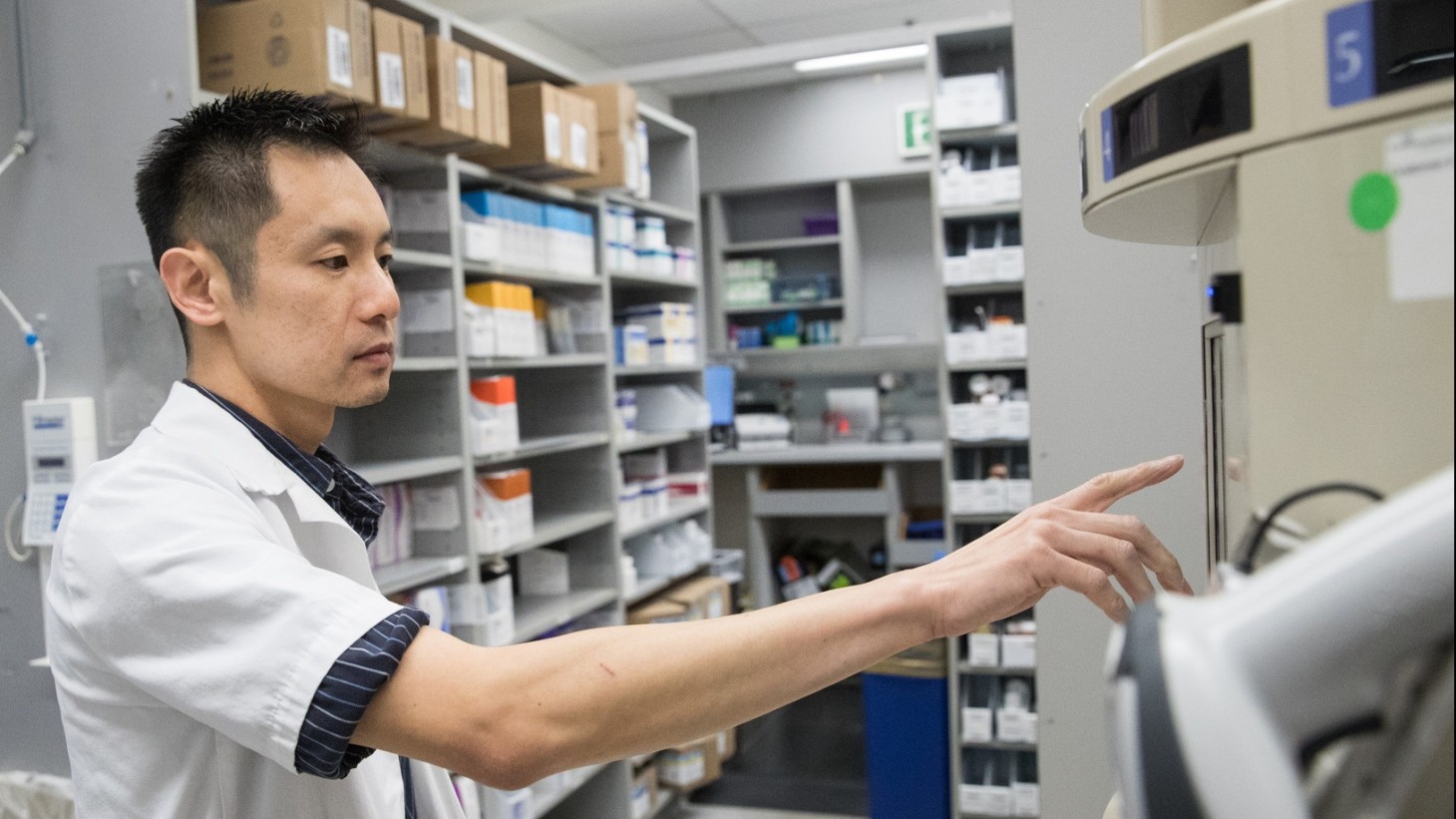Hank Q2/Q3-2017
See the whole issuePharmacy Saves Big With Value-Shopper Approach

Greater collaboration over inventory also contributes to a $1.1 million win
Budget-savvy shoppers know you can save money by buying in bulk—even, it turns out, when you’re buying pharmaceuticals. Just ask the team members of the Zion Outpatient Pharmacy in San Diego.
The unit-based team was able to save more than $1 million over five months by buying drugs in quantity and managing specialty medications better. And, adopting a practice that would make Goldilocks happy, the pharmacy now keeps just the right amount—no more, no less—of high-cost meds in stock. Managing costs helps keep expenses down for members, and the team’s improved communication means better service for patients, whose medications are there when they need them.
Not so long ago, the financial picture looked bleak for the 24-hour pharmacy, which serves discharged hospital patients and other members at the bustling Zion Medical Center. Inventory had swollen to more than $3 million. It was a signal the pharmacy had too much stock on hand and wasn’t turning it over frequently enough.
“We realized that we needed to do something,” says Nathan Close, outpatient pharmacy supervisor and management tri-lead of the 45-member team, which is at Level 4 on the five-point UBT Path to Performance.
Honest assessment
Team members set a five-month goal to reduce their bloated inventory by $600,000, from $3.2 million to $2.6 million, starting in January 2016.
Their first step was to review the pharmacy’s ordering and inventory practices. Team members quickly realized they were overstocking oral chemotherapy, Hepatitis C and antiviral medications. At $10,000 a bottle, rarely used pharmaceuticals suck up resources when they sit on shelves. Worse, if they aren’t used or returned to the manufacturer before they expire, they’re a costly mistake.
To get a better handle on prescription trends, team members reached out to ambulatory care pharmacists, who are part of a different team and who collaborate with physicians to treat members with cancer or chronic conditions. By partnering with the pharmacists, the team was able to plan ahead better.
“Once we know what patients are going to need, we make sure that we have that in stock,” says Wesley Frani, a pharmacy assistant and UFCW Local 135 member who is one of the team’s labor tri-leads.
Key to the team’s success is another labor tri-lead, Jane Corby, an inventory control assistant and also a UFCW Local 135 member. She carefully monitors stock levels to ensure that when patients present their prescriptions, the right medications are on hand.
Side benefit: Worker safety
The team also saved money by buying drugs in bulk. For example, instead of purchasing bottles of 100 pills, they opted for those containing 1,000 pills.
“Our idea behind bulk purchasing was the Costco theory,” says Close. “If we buy something in large quantity, we can save some money.”
The bulk purchasing had an unexpected side benefit: Team members also reduced stress on their wrists, because they were twisting off fewer bottle caps.
“Instead of opening 30 small bottles, we’re opening one large bottle,” Close explains.
The team’s bottom line is also under less stress. By June 2016, the pharmacy had saved $1.1 million—nearly twice as much as its original goal. In the months since, team members have sustained their streamlined ordering and inventory practices by communicating with each other via email, huddles and meetings.
“Without partnership,” says Angel Nguyen, ambulatory care pharmacist and a member of UNAC/UHCP, “we would not have been able to achieve the same results.”
Watch a video of this team in action.
